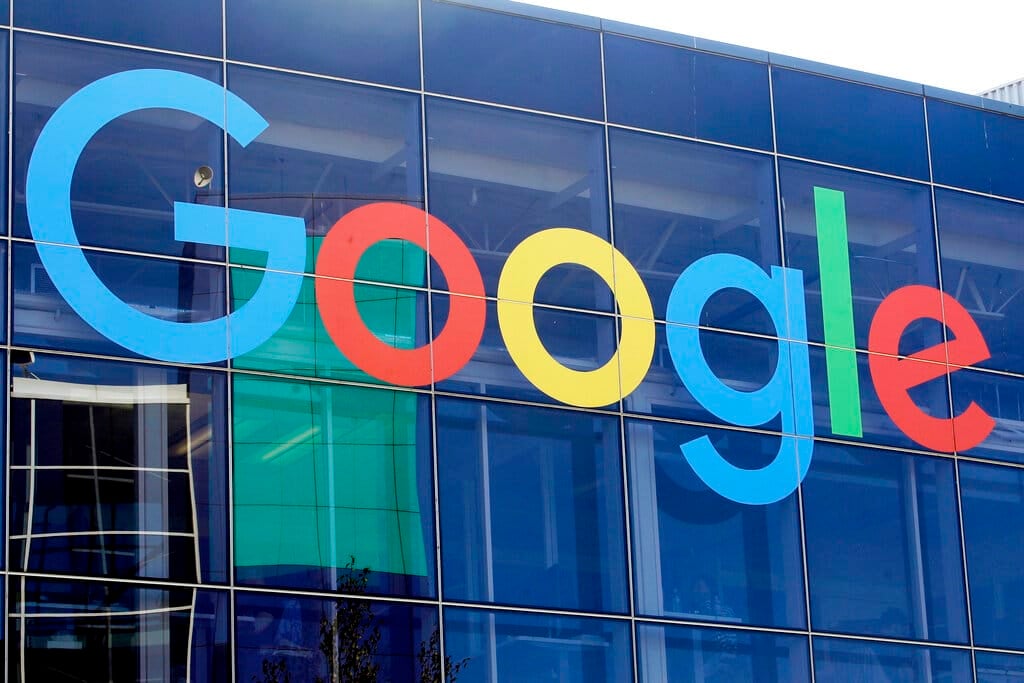Justice Dept. Wants Google Punished for Allegedly Hiding Antitrust Evidence

WASHINGTON — The Justice Department is asking a federal court to punish Google for what it says is an effort to hide evidence of antitrust violations.
A Justice Department motion revealed Thursday says Google automatically deleted employee chats after 24 hours.
Government investigators have been searching through employee communications to determine whether Google violated the Sherman Antitrust Act.
“Google’s daily destruction of written records prejudiced the United States by depriving it of a rich source of candid discussions between Google’s executives, including likely trial witnesses,” the Justice Department’s motion said.
Google denied it was trying to destroy evidence when it turned off the “history” function on its employee chats. The history function can preserve communications for as long as 18 months.
The Justice Department’s lawsuit accuses Google of illegally trying to monopolize online search and search advertising markets.
For one of its competitive tactics, Google paid billions of dollars to mobile carriers, cellphone manufacturers and web browser developers to pre-install the company’s web search engine on their products.
The contracts have helped Google dominate web searches and the advertising that appears next to users’ internet search results.
Google filed a motion for summary judgment Dec. 12, 2022, that says its agreements with tech giants like Apple Inc. and browser developer Mozilla are legally justified as “competition on the merits,” which are not the same as antitrust violations.
“Whenever Apple and Mozilla have entered a new or amended agreement to set Google as the default, they have done so based on their independent conclusions that doing so provides the best experience for their customers after evaluating other rival search engines,” Google said in a previous court filing.
The Justice Department has responded to Google by saying in court filings that the evidence “paints a starkly different picture.”
Google limits the ability of rival companies to challenge its market power and creates barriers to entry for them through unfair competition, according to the Justice Department.
The Justice Department is one of several groups and competitors that have filed antitrust lawsuits against Google.
Thirty-eight state attorneys general — led by Colorado — also are suing. Their lawsuit was consolidated with the Justice Department into a single claim in U.S. District Court for the District of Columbia.
The Justice Department’s request for sanctions says that Google’s “intentional and repeated destruction” of evidence such as employee communications violated the Federal Rules of Civil Procedure and a court order in the case.
Google said shortly after the lawsuit was filed in 2020 that it was preserving evidence for the case but turned its history function for chats back on only days before the Justice Department filed its request for sanctions, according to a government filing.
“When the United States indicated that it would file this motion — following months of conferral — Google finally committed to ‘permanently set to history on’ and thus preserve its employees’ chat messages,” the motion said. “Google’s recognition of its discovery obligation is nearly four years too late. And its belated actions cannot restore the years of discoverable materials already lost.”
Google said in a statement this week that it “strongly” denies the Justice Department’s assertions.
“Our teams have conscientiously worked for years to respond to inquiries and litigation,” the statement said. “In fact, we have produced over 4 million documents in this case alone, and millions more to regulators around the world.”
The Justice Department is requesting a hearing to determine fines or other sanctions the court might impose on Google.
The case is U.S. et al. v. Google LLC, case number 1:20-cv-03010, in the U.S. District Court for the District of Columbia.
You can reach us at [email protected] and follow us on Facebook and Twitter





















